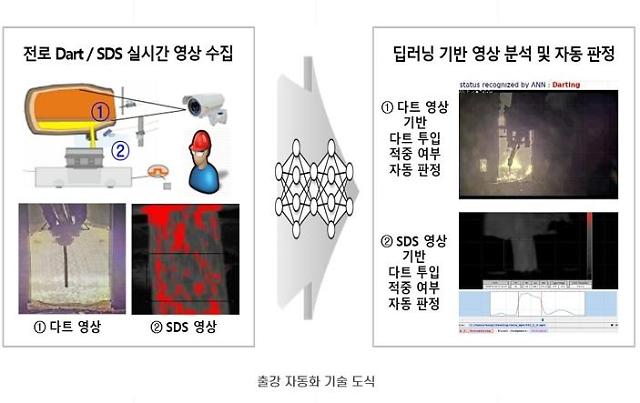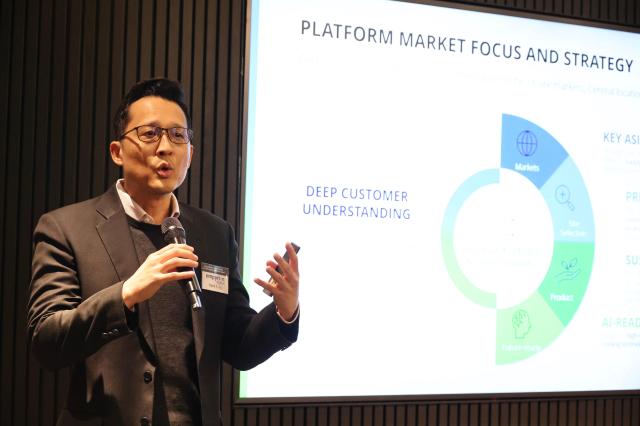
[Courtesy of POSTECH]
Steel, which is an alloy of iron and carbon, is produced through complicated steps involving extreme heat and pressure. Iron is manufactured in a blast furnace by heating iron ore and other additives such as coke, a mixture of different grades of coal. Molten iron is transported into a converter, also known as basic oxygen steelmaking (BOS) furnace, to be processed into steel. In the converter, oxygen combines with carbon and other unwanted elements.
Oxidized impurities that float on the surface of the molten metal are called slag. Tapping is the process of pouring molten steel through a drain hole of a converter into a torpedo ladle car. Veteran workers monitor the inside of the converter to drain molten metal and leave only the slag in the furnace. It is a highly delicate process as the production rate of steel depends on the amount of slag-less molten steel drained from the converter. A torpedo ladle car is used to carry hot steel to other sections of a steel mill.
Pohang University of Science and Technology (POSTECH) said in a statement on September 1 that its research team has worked with South Korea's top steel group POSCO to develop an artificial intelligence-based automated tapping system that uses a smart closed-circuit television (CCTV) camera to look inside a BOS furnace during the tapping process.
"The AI-based automated tapping system can greatly improve the safety of workers and their work efficiency as well as stabilizing the quality of products," POSTECH researcher Hong Dae-geun was quoted as saying. He said that the research team would upgrade the system so that it can counteract every type of accident.
Using the automated technique, the camera system's AI will detect the presence of slag and the right timing to insert darts, which are basically plugs designed to allow the flow of molten metal through the drainage hole of the converter and stop the movement of slag.
The camera system can upgrade skills through deep learning, POSTECH said. The AI-based system is capable of predicting optimized tapping process models by collecting and analyzing data. The system was applied to a POSCO steel mill in Gwangyang some 290 kilometers (180 miles) south of Seoul. POSTECH said the automated tapping technique will accelerate the adoption of smart factory systems at steel mills.
Copyright ⓒ Aju Press All rights reserved.





View more comments